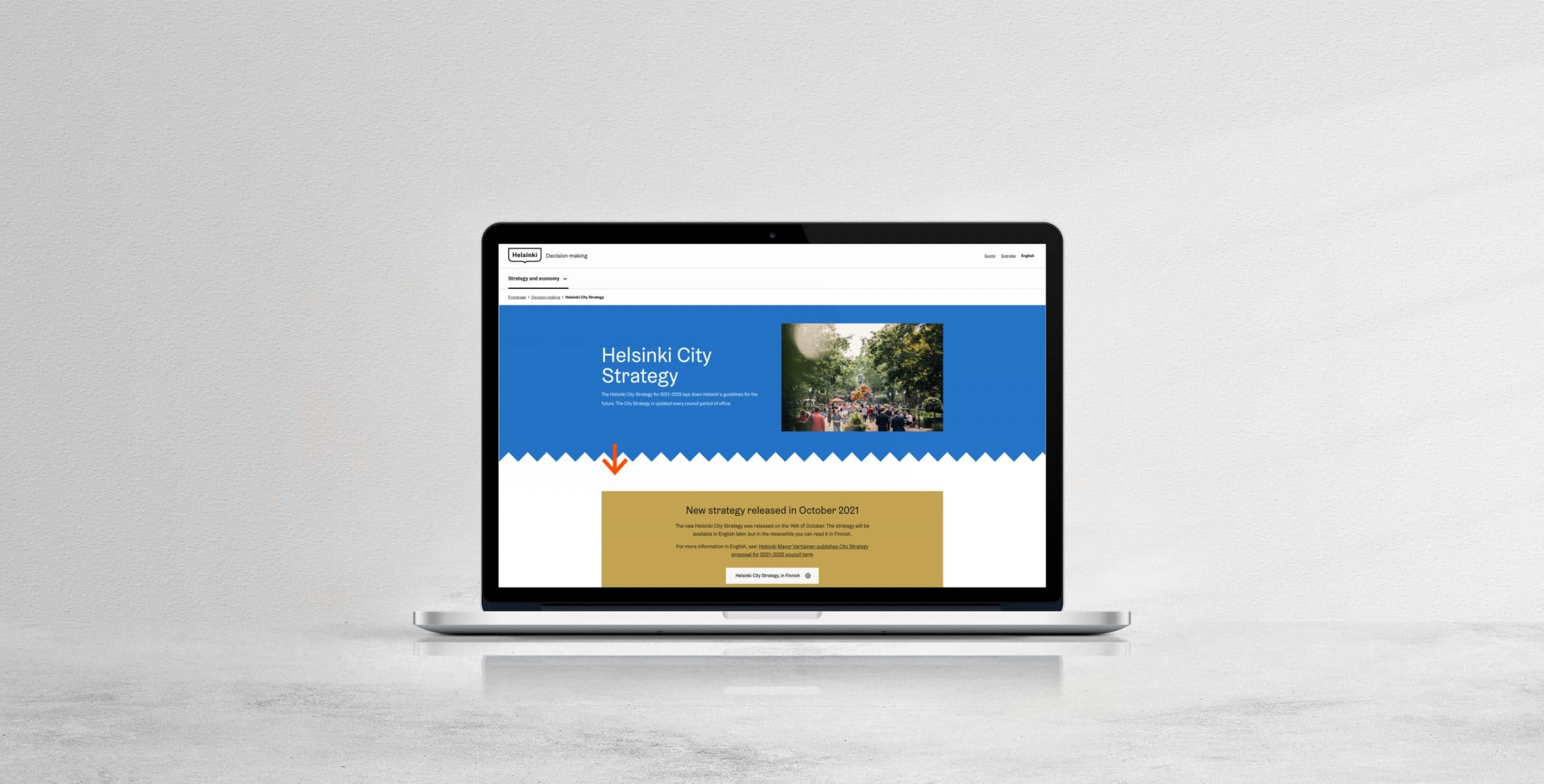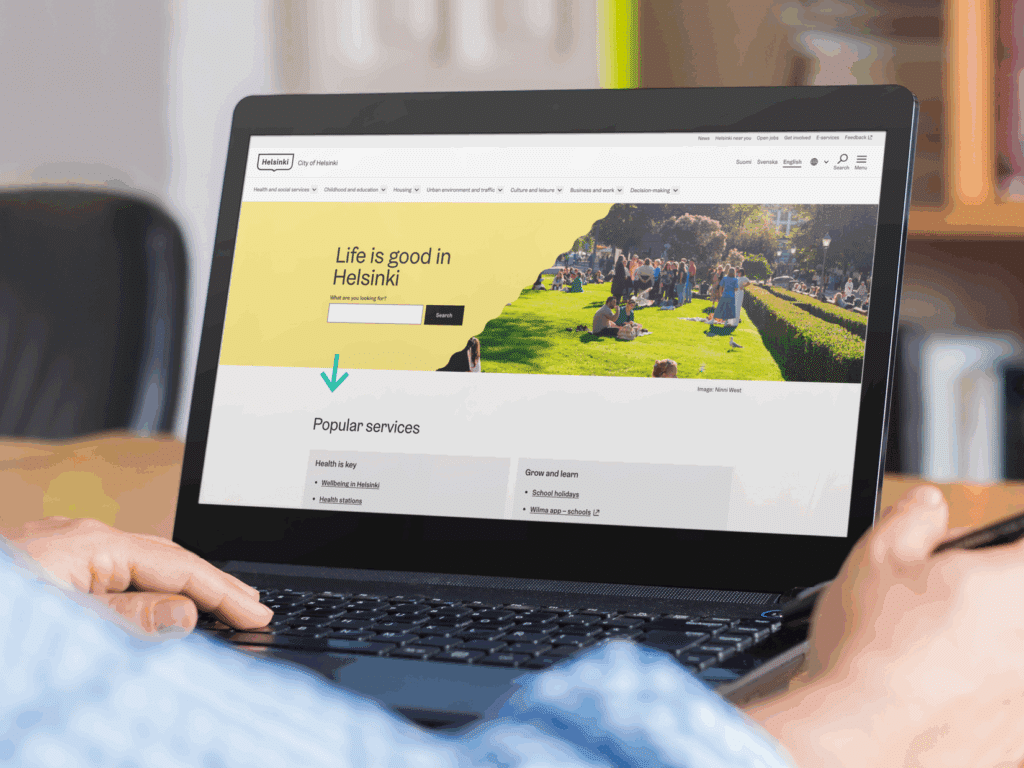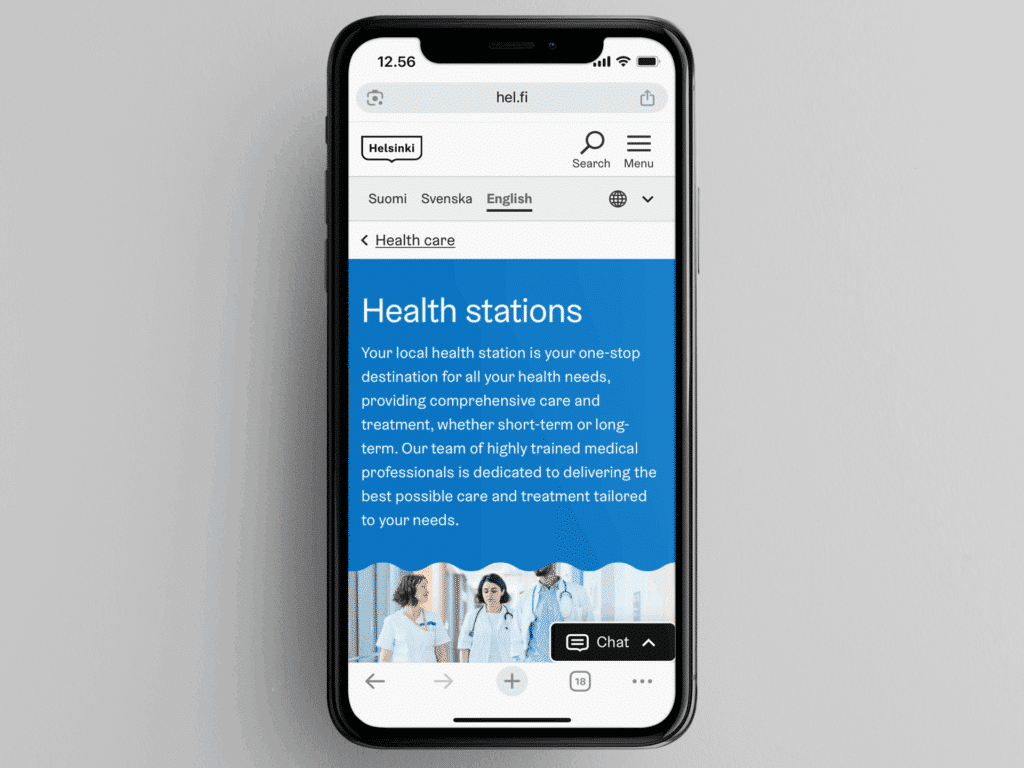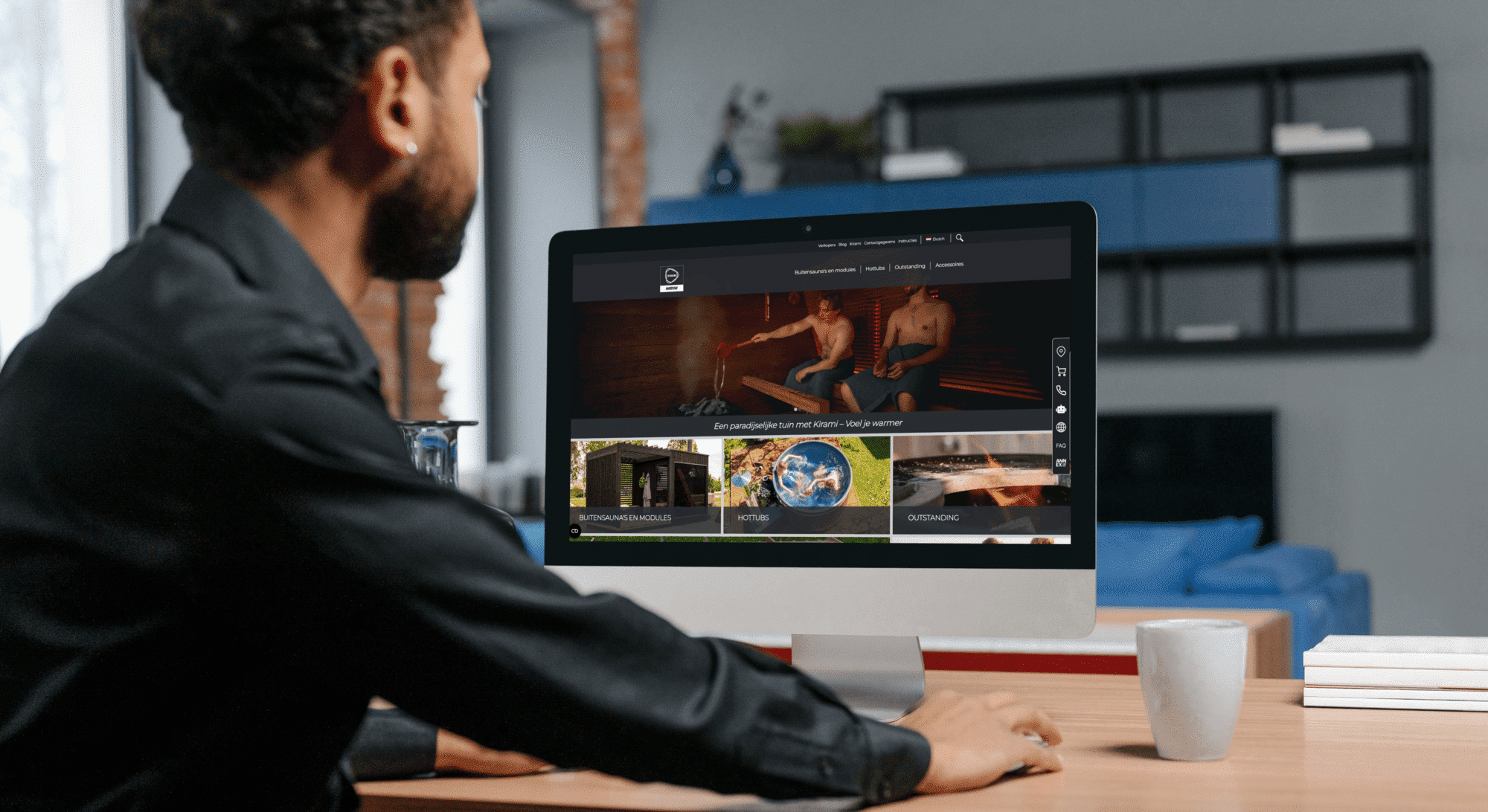
City of Helsinki
User-driven, Accessible, and Technically Advanced Digital Service
Launched in 2023, the City of Helsinki’s hel.fi website is the digital service portal of Finland’s largest city. It provides residents, businesses, and visitors with comprehensive access to city services, decision-making, and current information. The website serves over 10 million visitors annually in ten different languages and is built on the Drupal platform to support scalable, accessible, and multilingual content management.
Hel.fi is a model example of a public website that combines technical performance, user-centricity, accessibility, and strong data security and privacy. It serves as a benchmark for modern, transparent, and secure municipal communication and shows how digital services can truly enhance everyday life and strengthen citizen participation in public decision-making.
A flexible and cost-efficient platform for a technically demanding service
The vision for hel.fi was to create a truly user-friendly and technically advanced online service that delivers statutory services while communicating the city’s agenda in an impactful way.
Drupal enables smooth and accessible content production, consistent visual design aligned with the Helsinki Design System, and shared component usage. All code produced in the project is openly available under the MIT license.
The site renewal involved several complex system integrations, including key systems like the city’s service and location registry, decision-making system, and grants application system, as well as numerous smaller third-party integrations. As part of the ongoing development, hel.fi has introduced algorithm-based content recommendations and several location-based content filtering features.
Content administrators’ needs were a clear priority. A customized content management interface was built specifically for Helsinki to streamline editorial workflows.

“Druid has proven to be a highly skilled and reliable partner in the development and maintenance of hel.fi. Their team has worked flexibly in a multi-vendor environment and has even constructively challenged us, city employees, to adopt modern agile development practices.”
Mari Pietarila, Lead Specialist at City of Helsinki

Technical expertise and close collaboration
The Drupal platform offers flexibility to meet changing requirements and evolving development needs. Technical implementation has been handled by Druid, who has been a core partner since the project’s inception.
The continuous development of the platform follows a theme-driven model, where designers, product owners, and developers work in close collaboration. This model supports user-centric development and enables agile processes across different city departments. Druid has played an active role in both developing and operationalizing this approach.
“Developing my own hometown’s digital service with our team, together with an expert network, helps us deliver usable solutions. We want this service to reflect the city’s ambition to be responsible and service-minded,” says Anne Klemetti, Scrum Master at Druid.
Security, privacy, customer journey, and accessibility at the core of design
The hel.fi renewal project placed a strong focus on high-level data security and privacy. Standard procedures were defined to support technical development, the use of automated monitoring and testing tools was expanded, and a regular security audit process was established.
At the heart of privacy efforts was a customized cookie management tool for the city. This tool allows automated cookie monitoring, blocks unauthorized cookies, and ensures true GDPR compliance.
Accessibility has been a key focus from the beginning: hel.fi is designed to comply with WCAG guidelines, ensuring the service is usable for all citizens.
The site’s structure is built on user understanding and the everyday needs of city residents. Themes like urban environment and transport, and culture and leisure effectively classify content, while individual service areas – such as cycling or playgrounds – are easy and logical to find.
Work on improving the customer journey continues.
“It’s genuinely exciting to work on a project of this scale, where the team gets to push their skills and solve both technical and project management challenges. Applying agile practices within a hierarchical organization has taken some fine-tuning – but it’s now delivering real results.”
Arto Iijalainen, Production Director at Druid

